Erica Verrillo's Blog, page 93
May 18, 2014
What is the "Authors Alliance?" And Why You Should Not Join
 Authors Guild board member T.J. Stiles sent a note to the San Francisco Writers Grotto last week about the Authors Alliance, which launches next Wednesday.
Authors Guild board member T.J. Stiles sent a note to the San Francisco Writers Grotto last week about the Authors Alliance, which launches next Wednesday. After reading the Publishers Weekly interview with Authors Alliance founder, Pamela Samuelson, I have to say I agree with Stiles. The Authors Alliance doesn't represent authors any more than Georgia-Pacific represents trees.
The erosion of copyright protection can only harm authors. If we decide to offer our work for free, it should be when and how we choose. We gain nothing from giving up our right to royalties.
It should be mentioned that Stiles suggests that academics, who don't write for a living, wouldn't be harmed from the erosion of copyright. He is mistaken. Academic publications often garner huge royalties for authors when they become required reading for college courses.
Feel free to pass this along to others. Here's the link.
_________________________
May 15 note from T.J. Stiles to the San Francisco Writers Grotto:
I would like to pass along a warning about a new group that is trying hard to attract members, calling itself the Authors Alliance. In a recent interview in Publishers Weekly, founder and executive director Pamela Samuelson presented the Authors Alliance essentially as a counterweight to the Authors Guild. As an Authors Guild board member you may consider me biased. I have read the Authors Alliance materials, am familiar with the work of its directors, and met with one of them and developed a pretty good picture of what it’s all about.
If any of you earn a living as a writer, or hope to, I strongly urge you not to join the Authors Alliance. If you think authors should be the ones to decide what is done with their books, then I strongly urge you not to join.
However, if you are an academic, or scorn the idea of making a living from writing as a quest for “fame and fortune,” the Authors Alliance may be the organization for you. If you think, in our digital age, that the biggest problem facing authors is how hard it is to give your work away for free, it’s for you. If you think you’ve got too much power over people who copy and distribute your work without your permission, by all means sign up. Even if you agree with one or two things advocated by the Authors Alliance, if you join you lend weight to its entire agenda.
To be clear, I firmly believe that authors should have the choice to give their work away. That’s the Authors Guild position, too. But no one should make that decision for you. I’m pro-choice.
A few key points:
It’s an astroturf organization. It was not organized by authors, nor is it governed by them. The four directors are Berkeley academics. The executive director and her right-hand-woman are law professors who have made many proposals to reduce copyright protections for authors and restrict remedies for infringement. (I take that wording from the writings of Prof. Samuelson.)
As Samuelson stated in Publishers Weekly, the organization is intended to represent the interests of authors who don’t write for a living—academics and hobbyists. See my comments below on the financial interests they represent, and how they are at odds with those of authors who write for a living.
It may be too early to identify official Authors Alliance positions, but its directors and advisory board members have pushed such ideas as
• allowing people to resell digital files the way they can resell used physical books. Of course, with current technology the original copy would still exist, so that the “resale” would be copying. In other words, anyone could become a publisher of your book, selling or giving it away as much as they want by claiming to simply be reselling. You would have to prove they were doing it more than once—have fun with that! (For you legal wonks, this is called the application of “first-sale doctrine” to digital media.)
• allowing libraries to digitally copy your books, even if you have an e-book edition for sale. No security measures would be required. You would have to hire a lawyer to sue a library if you could prove that the library had allowed its self-published digital version of your book to be stolen and released onto the Internet. As has already happened with the theft of scholarly journals. Even if you did sue, by the way, you couldn’t collect damages from public libraries or state universities, which enjoy sovereign immunity.
• allowing private for-profit corporations to copy your books in their entirety and selling advertising against searches of them, and otherwise making money from your work. They wouldn’t have to ask your permission or share any revenue with you. Samuelson said, on behalf of the Authors Alliance, that Google had the right to do so, which would mean any business corporation could monetize your work, if they know how to game it just right.
• allowing potentially unlimited copying for educational uses. For many of us, library and educational markets are huge parts of our income. Many books are created specifically for educational use. Expanding free copying raises potentially huge problems—including the possibility that anyone claiming to be an educator could copy your work wholesale and not pay.
• requiring proper attribution of others’ works. This reasonable-sounding proposal sounds all kinds of alarms. Who will judge our books? What will be the penalties?
I have no doubt that their theories are sincerely held. But they happen to align perfectly with their own financial and professional interests. As academics, they don’t care about the commercial market for books or writing. I would argue they’re actively hostile to it.
Not including the executive director, the lowest paid member of the four directors earned $196,000 in 2012; the highest paid earned $262,200. That doesn’t include benefits. Prof. Samuelson is independently wealthy. I’m happy for their success, and wish all professors were paid this well. But my point is that these academics are insulated from the commercial book market, except to engage in it as consumers. They don’t earn much from royalties, but in most cases their advancement is largely based on publishing low-print-run academic works. Their interests lie in getting your books at low cost to supply their own academic work, and in advancing their own careers and incomes by making their own work available for free. Salary information is available here: https://ucannualwage.
When it comes to issues that actually matter to authors, the Authors Guild already advocates and provides actual services. The Authors Alliance does not. The Authors Guild provides free contract review and much more. The Authors Alliance will provide one-size-fits-all“education” about how to get your rights back. Period.
Again, you may believe that authors are too powerful, and have too much control over what happens to their work. But please be warned that if you sign up, you are lending support to a very long agenda. The Authors Guild is actually run by authors, elected by the membership, with an annual meeting open to all. That ain’t true of the Authors Alliance.
The Authors Alliance will stress some issues that are of authentic interest to authors, such as making it easier to get your rights back when you’ve signed them away to a publisher. If that was all there was, fair enough. But it exists to make it appear that there is a grassroots authors’ organization in favor of loosening copyright protections and limiting remedies for copyright infringement. (Do we have any remedies, by the way? Take-down letters are about as powerful as wishing wells.) And it doesn’t offer any actual services.
The intellectual-property shop at Berkeley’s law school has a very aggressive and expansive agenda that was crafted without working authors in mind. They want you to join so they can say you are one of a large group that supports that entire agenda. Let the joiner beware.
T.J. Stiles
Authors Guild board member
Author of The First Tycoon: The Epic Life of Cornelius Vanderbilt, winner of the Pulitzer Prize and National Book Award, and former Guggenheim fellow
Note: Copyright confers substantial benefits to academic authors. The Authors Registry, which shares office space with the Authors Guild provides a handy example. The Registry pays photocopy royalties collected abroad to US authors. Over the years, it has paid the lion’s share of its $22 million in disbursements to academic authors. Not many refuse the checks.
This is not to say that copyright is functioning as it should in academia. Far too often, copyright is used to separate scholars and scientists from their intellectual property. Scientific and scholarly journals frequently insist on seizing the author’s copyright as part of the price of publication. For scientists in particular this can be galling: their work is usually publicly funded, yet privately locked up.
Published on May 18, 2014 08:22
May 14, 2014
Famous Authors Who Disowned Their Own Books
I ran across this blog post via Publisher's Weekly, which is a great source of publishing news and information. Of course, I expected that Kafka would have ordered all of his works to be burned (that is sooo Kafka-esque), but Ian Fleming?
________________________
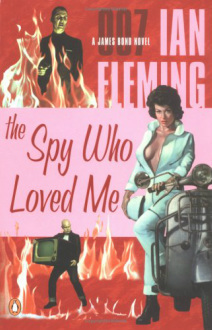 10 Great Authors Who Disowned Their Own Books
10 Great Authors Who Disowned Their Own Books
By Madeleine Monson-Rosen and Charlie Jane Anders, i09.com
1) Ian Fleming, The Spy Who Loved Me
Fleming wrote this novel, in which James Bond is basically a secondary character, in an attempt to caution his readers against making Bond into too much of a hero. Fleming said he wanted to make Bond's misogyny apparent after being shocked to discover that his Bond novels were being taught in schools. This "experiment," Fleming wrote to his publisher after the book received overwhelmingly negative reviews, had "obviously gone very much awry," and Fleming attempted to keep the book out of print. After Fleming's death, however, the value of his backlist overwhelmed the author's wishes, and The Spy Who Loved Me came back into print.
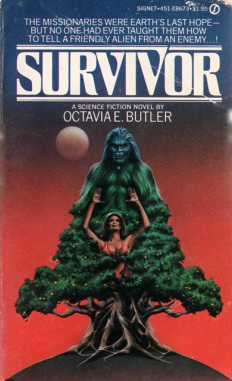 2) Octavia Butler, Survivor
2) Octavia Butler, Survivor
This 1978 novel is the only one of Butler's works to remain out of print. She disowned it and let it stay buried, because she felt it depended on the worst cliches of science fiction:
When I was young, a lot of people wrote about going to another world and finding either little green men or little brown men, and they were always less in some way. They were a little sly, or a little like "the natives" in a very bad, old movie. And I thought, "No way. Apart from all these human beings populating the galaxy, this is really offensive garbage."
People ask me why I don't like Survivor, my third novel. And it's because it feels a little bit like that. Some humans go up to another world, and immediately begin mating with the aliens and having children with them. I think of it as my Star Trek novel.
While Butler never stopped using science fiction tropes as allegories, she stayed away from the stereotypes invoked in Survivor after that.
Find out which other famous books were rejected by the authors who wrote them here.
________________________
 10 Great Authors Who Disowned Their Own Books
10 Great Authors Who Disowned Their Own BooksBy Madeleine Monson-Rosen and Charlie Jane Anders, i09.com
1) Ian Fleming, The Spy Who Loved Me
Fleming wrote this novel, in which James Bond is basically a secondary character, in an attempt to caution his readers against making Bond into too much of a hero. Fleming said he wanted to make Bond's misogyny apparent after being shocked to discover that his Bond novels were being taught in schools. This "experiment," Fleming wrote to his publisher after the book received overwhelmingly negative reviews, had "obviously gone very much awry," and Fleming attempted to keep the book out of print. After Fleming's death, however, the value of his backlist overwhelmed the author's wishes, and The Spy Who Loved Me came back into print.
 2) Octavia Butler, Survivor
2) Octavia Butler, Survivor
This 1978 novel is the only one of Butler's works to remain out of print. She disowned it and let it stay buried, because she felt it depended on the worst cliches of science fiction:
When I was young, a lot of people wrote about going to another world and finding either little green men or little brown men, and they were always less in some way. They were a little sly, or a little like "the natives" in a very bad, old movie. And I thought, "No way. Apart from all these human beings populating the galaxy, this is really offensive garbage."
People ask me why I don't like Survivor, my third novel. And it's because it feels a little bit like that. Some humans go up to another world, and immediately begin mating with the aliens and having children with them. I think of it as my Star Trek novel.
While Butler never stopped using science fiction tropes as allegories, she stayed away from the stereotypes invoked in Survivor after that.
Find out which other famous books were rejected by the authors who wrote them here.
Published on May 14, 2014 16:17
May 11, 2014
3 New Literary Agents Looking for Writers
These three agents are new, which means they are eager to build their lists. New agents are not necessarily new to the business. Often they have worked as editors, and have years of experience. Read their agency websites carefully to see if your work is a good fit.
____________________
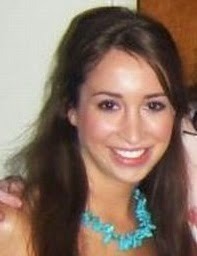 Maria Ribas of Morhaim Literary
Maria Ribas of Morhaim Literary
About Maria: Maria Ribas graduated with English Honors from the University of Richmond. She began her editorial career at Atria at Simon and Schuster, then moved to Harlequin Nonfiction and Adams Media, where she was an associate editor before joining the agency. As a former editor, she has a keen sense of what editors are really looking for, and she has years of experience building relationships with authors. She has always specialized in practical nonfiction and has a firm grasp of how to assess an author’s platform–and how to help authors build that platform.
What she is seeking: She’s interested in cookbooks, self-help, health, diet, home, parenting, and humor, all from authors with demonstrable platforms. She’s also interested in narrative nonfiction and select memoir, but she’s looking for a story that is absolutely un-put-down-able. She is fluent in Spanish and Portuguese and proficient in Italian and will be working with select foreign authors.
How to submit: To submit, e-mail your query letter along with three sample chapters (for fiction) or full proposal (for non-fiction) to one of the agents listed below. Average response time is 6 to 8 weeks. Please paste materials [no attachments]. Query maria [at] morhaimliterary.com
__________________
Paul Lamb of Morhaim Literary
About Paul: Paul Lamb is a graduate of DePauw University in Greencastle, Indiana, and was a recipient of a POSSE Scholarship. Paul joins the agency after nearly a decade in Marketing at both Penguin and Random House, with various imprints. Owing to his professional experience in trade publishing, Paul has a strong sense of publishers’ needs, and a unique insight into the representation of authors.
What he is seeking: His tastes lie strongly with nonfiction in a wide variety of genres and subjects, notably business, political science, sociology, memoir, travel writing, sports, pop culture, and music. He is also interested in crime, mystery, and literary fiction.
How to submit: To submit, you should email your query letter along with three sample chapters (for fiction) or full proposal (for non-fiction) to one of the agents listed below. Average response time is 6 to 8 weeks. Email Paul at paul @ morhaimliterary.com
__________________
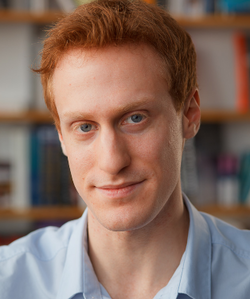 Michael Sterling of Folio Literary Management
Michael Sterling of Folio Literary Management
About Michael: “I joined Folio Literary Management in 2011. Prior to that I worked at Habitus: A Diaspora Journal, a literary magazine based in Brooklyn. My work there was editorially driven and I’ve since brought that experience to Folio, where I’ve worked with many best-selling fiction and nonfiction authors across various genres, including thriller authors, cookbooks writers, and literary novelists.”
What he is seeking: Fiction: “I love literary, commercial, and upmarket fiction. Thrillers with tremendous commercial appeal and strong writing are of particular interest to me—I’m a fan of anything from Lee Child to John le Carré. As a reader, I enjoy period novels in any genre. 20th century wars provide some of my favorite temporal settings, for instance. I love novels with high concepts (think The Age of Miracles by Karen Thompson Walker, or Life After Life by Kate Atkinson) and books that can teach me about new cultures and transport me to new countries are always among my favorite.”
Nonfiction: “A self-avowed foodie, I avidly devour cookbooks and am interested in working with authors who share this passion of mine. My tastes veer towards books with a strong narrative element—I’m seeking political books, memoirs, investigative and journalistic works, or titles that place a specific region, historical event, person or thing under a microscope. For instance, I’d love to read more about the Middle East, especially works in which contemporary issues are explored in new ways.”He is not looking for: Romance; YA/Middle grade/Children’s; Fantasy
How to Submit: Please submit queries to msterling (@) foliolit.com [be sure to remove the parentheses], and include “QUERY” in the subject line. Please include the query letter and first ten pages of your manuscript or proposal in the body of the email.
____________________
 Maria Ribas of Morhaim Literary
Maria Ribas of Morhaim LiteraryAbout Maria: Maria Ribas graduated with English Honors from the University of Richmond. She began her editorial career at Atria at Simon and Schuster, then moved to Harlequin Nonfiction and Adams Media, where she was an associate editor before joining the agency. As a former editor, she has a keen sense of what editors are really looking for, and she has years of experience building relationships with authors. She has always specialized in practical nonfiction and has a firm grasp of how to assess an author’s platform–and how to help authors build that platform.
What she is seeking: She’s interested in cookbooks, self-help, health, diet, home, parenting, and humor, all from authors with demonstrable platforms. She’s also interested in narrative nonfiction and select memoir, but she’s looking for a story that is absolutely un-put-down-able. She is fluent in Spanish and Portuguese and proficient in Italian and will be working with select foreign authors.
How to submit: To submit, e-mail your query letter along with three sample chapters (for fiction) or full proposal (for non-fiction) to one of the agents listed below. Average response time is 6 to 8 weeks. Please paste materials [no attachments]. Query maria [at] morhaimliterary.com
__________________
Paul Lamb of Morhaim Literary
About Paul: Paul Lamb is a graduate of DePauw University in Greencastle, Indiana, and was a recipient of a POSSE Scholarship. Paul joins the agency after nearly a decade in Marketing at both Penguin and Random House, with various imprints. Owing to his professional experience in trade publishing, Paul has a strong sense of publishers’ needs, and a unique insight into the representation of authors.
What he is seeking: His tastes lie strongly with nonfiction in a wide variety of genres and subjects, notably business, political science, sociology, memoir, travel writing, sports, pop culture, and music. He is also interested in crime, mystery, and literary fiction.
How to submit: To submit, you should email your query letter along with three sample chapters (for fiction) or full proposal (for non-fiction) to one of the agents listed below. Average response time is 6 to 8 weeks. Email Paul at paul @ morhaimliterary.com
__________________
 Michael Sterling of Folio Literary Management
Michael Sterling of Folio Literary ManagementAbout Michael: “I joined Folio Literary Management in 2011. Prior to that I worked at Habitus: A Diaspora Journal, a literary magazine based in Brooklyn. My work there was editorially driven and I’ve since brought that experience to Folio, where I’ve worked with many best-selling fiction and nonfiction authors across various genres, including thriller authors, cookbooks writers, and literary novelists.”
What he is seeking: Fiction: “I love literary, commercial, and upmarket fiction. Thrillers with tremendous commercial appeal and strong writing are of particular interest to me—I’m a fan of anything from Lee Child to John le Carré. As a reader, I enjoy period novels in any genre. 20th century wars provide some of my favorite temporal settings, for instance. I love novels with high concepts (think The Age of Miracles by Karen Thompson Walker, or Life After Life by Kate Atkinson) and books that can teach me about new cultures and transport me to new countries are always among my favorite.”
Nonfiction: “A self-avowed foodie, I avidly devour cookbooks and am interested in working with authors who share this passion of mine. My tastes veer towards books with a strong narrative element—I’m seeking political books, memoirs, investigative and journalistic works, or titles that place a specific region, historical event, person or thing under a microscope. For instance, I’d love to read more about the Middle East, especially works in which contemporary issues are explored in new ways.”He is not looking for: Romance; YA/Middle grade/Children’s; Fantasy
How to Submit: Please submit queries to msterling (@) foliolit.com [be sure to remove the parentheses], and include “QUERY” in the subject line. Please include the query letter and first ten pages of your manuscript or proposal in the body of the email.
Published on May 11, 2014 13:16
May 8, 2014
Self-Censorship in Reporting the News
 This post appeared last fall on the Author's Guild site. The investigation, sponsored by the PEN Center, and conducted by the FDR Group makes for some interesting reading.
This post appeared last fall on the Author's Guild site. The investigation, sponsored by the PEN Center, and conducted by the FDR Group makes for some interesting reading.If journalists are self-censoring with the anticipation that writing about, or even talking about, certain subjects will land them in trouble, then our version of reality is tinted by rose-colored glasses. By not talking about the Middle East or Northern Africa, or military affairs, or certain languages (which ones?) these topics essentially cease to exist.
In many ways, self-censorship is worse than overt institutional censorship. There is nobody to challenge, and nobody to sue, because those who censor themselves have chosen not to exercise their Constitutional right to free speech
If you don't use it, you lose it.
__________________________________________
The Big Chill: Authors Avoid Controversial Topics in Wake of NSA Revelations, PEN Survey Says
Author's Guild, November 13, 2013
Fear of government intrusion is influencing how some American authors and journalists do their jobs, causing them to avoid researching, writing about and even privately discussing many of the most newsworthy topics, according to a report by the PEN American Center, Chilling Effects: NSA Surveillance Drives U.S. Writers to Self-Censor:
“Writers reported self-censoring on subjects including military affairs, the Middle East North Africa region, mass incarceration, drug policies, pornography, the Occupy movement, the study of certain languages, and criticism of the U.S. government. The fear of surveillance—and doubt over the way in which the government intends to use the data it gathers—has prompted PEN writers to change their behavior in numerous ways that curtail their freedom of expression and restrict the free flow of information."
The report, based on a survey of PEN members, measured how writers had changed their behavior because they thought the government was monitoring their communications. Among the findings:
• 16% have avoided writing or speaking on a particular topic, 11% have seriously considered it.
• 28% have curtailed or avoided social media activities, 12% have seriously considered it.
• 24% have avoided certain topics in phone or email conversations, 9% have seriously considered it.
• 16% have refrained from conducting Internet researches or visiting websites on topics that may be considered controversial or suspicious, 12% have seriously considered it.
• 13% have taken extra steps to disguise or cover their digital footprints, 11% have seriously considered it.
• 3% have declined opportunities to meet (in person or electronically) people who might be deemed security threats by the government, 4% have seriously considered it.
Conducted in October with the help of research firm FDR Group, the survey tracked the responses of 528 PEN members. Questions touched on the experiences, concerns and attitudes of writers in the wake of revelations about National Security Agency surveillance that began with documents leaked by Edward Snowden.
In follow-up conversations, some writers talked about dropping projects out of fear of becoming surveillance target. Others said they’re already a target:
“‘Selected’ for a special security search returning to the United States from Mexico twice last summer, I learned I was on a U.S. Government list. I was searched for ‘cocaine’ and explosives. I suspect … that I must have been put on the government list because of an essay I wrote … in which I describe finding a poem on a Libyan Jihad site, and ultimately express some sympathy for young men on the other side of the world who are tempted into jihad … one can see how [the poem] might be a comfort to jihadists.”
The survey found 85% are worried about government surveillance of Americans, while 73% say they’ve never been as concerned about privacy rights and freedom of the press as they are now.
Survey results showing a high level of concern about being compelled to reveal sources are especially timely as the Senate considers federal shield law legislation. PEN doesn’t mention the legislation by name, but it does call on on the government to enact limits on surveillance and improve transparency, reforms similar to those found in the Free Flow of Information Act.
One particularly intriguing aspect of the report is how it reveals writers to be much less tolerant of having their communications monitored than Americans overall. Asked their opinion of “the government’s collection of telephone and Internet data as part of anti-terrorism efforts,” only 12% of PEN members said they approve, compared with half of respondents in an earlier survey of the general public.
As the PEN report concludes, the cost of government surveillance is largely hidden.
“Part of what makes self-censorship so troubling is the impossibility of knowing precisely what is lost to society because of it. We will never know what books or articles may have been written that would have shaped the world’s thinking on a particular topic if that are not written because potential authors are afraid that their work would invite retribution.
Published on May 08, 2014 06:18
May 5, 2014
How to use Kickstarter and other services to fund your book
 Start small, think big... I ran across the article below in Publishers Weekly not too long ago, and it got me to thinking. Does it make any sense to crowdfund a book that, if self-published electronically, will cost you less than $100?
Start small, think big... I ran across the article below in Publishers Weekly not too long ago, and it got me to thinking. Does it make any sense to crowdfund a book that, if self-published electronically, will cost you less than $100?The answer is no. But, that does not mean you should rule out crowdfunding as part of a larger strategy.
What if (just indulge me for a moment) you set your sights higher than publishing a book?
For example, if you intended write a series, wouldn't it make better sense to put your crowdfunding efforts into something more attractive than a single publication? A writer with a series of cookbooks, or themed children's books, or sci-fi books, could use crowdfunding - not to fund a single book - but to start a publishing company.
Most small publishing houses started out as a means for a writer to publish his or her books. I can't see any reason why a crowdfunding platform can't be used to accomplish that, or, in fact, why several authors couldn't use Kickstarter to fund a joint project to start a publishing house.
After all, that is the way Random House began - just a few writers who decided to publish some random books.
______________________
DIY: Crowdfunding 101 - How to use Kickstarter and other services to fund your book
By Jennifer McCartney, Publishers Weekly, Apr 14, 2014
Without an advance or the support of a publisher’s art, publicity, and marketing departments, securing funding to publish and publicize a book can be an uphill battle. Because of this, many enterprising indie authors have turned to crowdfunding platforms -- which pair artists and projects with donors -- to support their publishing efforts. Crowdfunding can be a fun and creative way to raise money to support a new book.
There are book-specific crowdfunding sites well worth checking out such as Pubslush, which calls itself a "global book club with a cause" and Authr.com. Though these have a smaller audience, the advantage is that funders are specifically looking to support publishing projects. The two largest and most popular sites, however, are the more established Kickstarter and Indiegogo.
Kickstarter
Kickstarter is the most popular crowdfunding platform. Via Kickstarter’s user-friendly interface, an author creates a profile for her proposed book that includes a short description, how much she wants to raise, and what exactly she plans to do with the funds. This can cover everything from printing and shipping costs, layout and design fees, ISBN registration, photography expenses, the hiring of an illustrator, or editing and proofreading expenditures. Authors can upload images and post a personal video to add interest to their listing. The site offers helpful tips for creating the best page possible to showcase your idea. Authors should follows these guidelines to ensure that their pages are as engaging as possible.
If the project is fully funded by Kickstarter’s deadline (30 days is the recommended length of time for a project) the author receives the money minus the company’s 5% fee, as well as a 3 to 5% processing fee that goes to Amazon Payments. Contributors can receive rewards from the author based on their level of funding. Authors should think of creative rewards to offer potential funders -- such as a Skype chat for a book club, a bookmark, or signed copies of the finished book.
To begin, authors should check out the Kickstarter guidelines and note that the self-help genre (including business, health, and relationship advice) is not eligible as a Kickstarter project. Authors must also be a U.S. resident with a Social Security Number, U.S. bank account, and credit or debit card, and they must be 18 or older.
Ariane Roberts is using Kickstarter to fund her illustrated children’s book Jamie Loves Her Natural Hair. Her advice to authors is: “plan, plan, and plan!”
“Before you even start your campaign, have your contact list ready to notify everyone about your project once it has launched,” says Roberts. “Make sure you are building a list of contacts that you feel will be genuinely interested in sharing your project with their audience.”
Kate Agnew, who is hoping to fund her Donuts: A Photo Book project through Kickstarter, says her desire to have total ownership over her project led her to the crowdfunding site. She advises potential authors to do their research before setting up their campaign, citing the two to five day waiting period before the project goes live as an example of something for which authors need to plan.
Both Agnew and Roberts cite getting word out about their campaigns to be the hardest challenge. Roberts cautions, “You may need to do some foot work by getting out and speaking to people or groups that could potentially become supporters of your project.”
Crowdfunding also gives an author a sense of how popular her book might be. “It is kind of like testing the water before jumping in, which made it a good fit for me,” Agnew says. “While safe in some ways, I'm still putting myself out there -- still taking the risk. That's what writing is all about.”
Indiegogo
Indiegogo is a popular crowdfunding site that’s available to anyone in the world with a bank account, making it an option for authors based outside the U.S. Unlike Kickstarter, Indiegogo allows users to keep the funds they raise even if they don’t make their funding goal with a program called Flexible Funding. The site takes a fee which is 4% of the money raised if an author’s funding goal is met or 9% if it’s not met. Authors are also charged 3% for credit card processing, plus a $25 wire fee for campaigns outside the U.S.
Indiegogo also offers something called the Gogofactor, which measures the activity of an author’s campaign with an algorithm, rewarding active authors with newsletter or blog mentions and better search rankings.
Linnie von Sky successfully crowdfunded her first children’s book Our Canadian Love Story with Indiegogo and is following that success with another campaign for an anti-bullying children's book.
"Running a campaign is a full time job," von Sky says. Most funders are people in her extended social circles, but she notes that, given the broad appeal of the anti-bullying message of her second project, she was able to attract funding from people she doesn't know. She says the key to making a campaign successful is to be be fully engaged on all social platforms. "Defending your idea and its place in the crowded crowdfunding universe is an excruciatingly exhausting effort," von Sky says.
While crowdfunding isn’t for every author, it can be an essential tool for the right project -- if an author is willing to work hard to promote her book.
Jennifer McCartney is a freelance writer, editor, and author of the novel Afloat. Follow her at @jennemem.
Published on May 05, 2014 07:26
May 1, 2014
Never Underestimate the Power of a Book Review
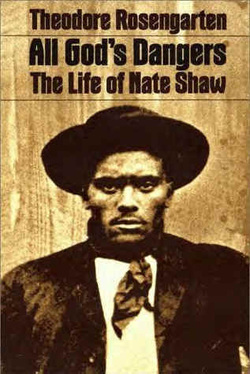 Amazon Phenomenon: NYT Article Boosts Obscure Book to Bestsellerdom
Amazon Phenomenon: NYT Article Boosts Obscure Book to BestsellerdomBy Matthew Kassel, NY Observer, 04/21/14
This past weekend, a little-known book called All God’s Dangers: The Life of Nate Shaw was resurrected from obscurity when it surged to the top of Amazon’s rankings and became the bestselling book in America.
The reason for the sudden boost in popularity was a New York Times article by the book critic Dwight Garner, which appeared online on Friday and on the front page of the New York edition of the Times arts section on Saturday. By Saturday evening, the book was No. 1 on Amazon’s best sellers list, and its sales numbers had surged by a staggering 1,542,000 percent, according to the website’s Movers and Shakers list.
All God’s Dangers is a 600-page oral history, compiled by Theodore Rosengarten, of a black Alabama sharecropper named Ned Cobb. (Nate Shaw was a pseudonym.) It won the National Book Award in 1974 and was well-reviewed. “But it seems to have vanished from the culture at large,” Mr. Garner wrote in his critical appraisal.
Until now, that is. Garrett Kiely, director of the University of Chicago Press, which has published All God’s Dangers in paperback since 2000, said the article—and the concomitant boost in sales—was a welcome surprise.
“We vaguely knew something about the New York Times interest in the book because they’d asked us for copies to check some details,” he told the Observer. “But we didn’t quite know what it was, and it was nice to see.”
Mr. Kiely said that most copies of the book are sold for courses at the university level: history and African-American studies, for instance. “It wasn’t off our radar,” he said. “It was just off everybody else’s radar.”
This isn’t the first time that academic books from the backlist have gained momentum due to a mention in the news cycle.
Friedrich Hayek’s The Road to Serfdom, a seminal book of economics also published by University of Chicago Press, had languished in academic circles until a positive mention by Glenn Beck sent it to the top of Amazon’s best sellers list in 2009.
Another book of economics, Thomas Piketty’s Capital in the Twenty-First Century, published by Harvard University Press, is the current best-selling book in the United States, according to Amazon. It appeared in the No. 2 spot alongside All God’s Dangers over the weekend, possibly boosted by Paul Krugman’s glowing review in the latest issue of The New York Review of Books. (As Mr. Kiely noted, it was a rare treat to see university press books at the top of the listings; All God’s Dangers, as of this writing, remains in the top 100, at No. 17.)
Mr. Garner, who, as one of three daily book critics for the Times, maintains what is perhaps the most influential perch in American literary taste-making, said he had never in his years as a reviewer seen one of his articles affect a book’s sales in this way.
“Being able to give a small boost to worthwhile books is easily the best thing about being a critic,” he said in an email to the Observer. “But no, I’ve never seen anything like this. We’re not talking about a new Michael Lewis book here; we’re talking about a 40-year-old autobiography of an illiterate sharecropper in the deep South. This is deep Americana.”
He added: “Ned Cobb is worth every bit of the attention, and I suspect he’d love it.”
Published on May 01, 2014 07:55
April 28, 2014
3 Literary Agents Looking for New Clients
These agents are actively building client lists. As always, read the entire agency website before submitting. Check to see what other writers have said about the agency on Absolute Write, and do a google search on the both the agency and the agent. It's always enlightening to see what pops up.
_____________________
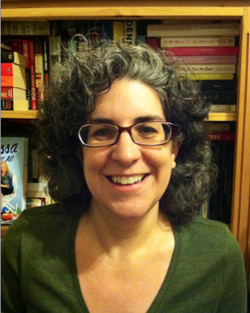 Michelle Richter of Foreword Literary Agency
Michelle Richter of Foreword Literary Agency
About Michelle: Michelle Richter was formerly an editor at St. Martin’s Press. Michelle has a degree in Economics with a minor in Russian from the University of Massachusetts at Boston and left a career in finance for publishing. She joined St. Martin’s Press’ editorial department in 2006 after obtaining a Masters in Publishing from Pace University. Find her on Twitter at @michrichter1.
What she is seeking: Michelle is primarily seeking fiction, specifically book club reads, literary fiction, well-crafted women’s commercial fiction, thrillers, and mysteries. For nonfiction, she’s interested in fashion, film, television, science, medicine, sociology/social trends, and economics for trade audiences.
How to submit: To query Michelle, please send your query letter, a 1-2 page plot synopsis, and the first twenty pages of your manuscript to querymichelle [at] forewordliterary.com as an attached Word document. Please allow up to eight weeks response time.
____________________
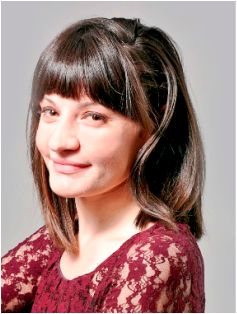 Rebecca Podos at Rees Literary Agency
Rebecca Podos at Rees Literary Agency
About Rebecca: Rebecca Podos (Rees Literary Agency) is a graduate of the MFA Writing, Literature and Publishing program at Emerson College, whose own fiction has appeared in Glimmer Train, Glyph, CAJE, Bellows American Review, Paper Darts, and SmokeLong Quarterly. She represents YA books by talented clients such as Rin Chupeco, Jen Anckorn, Ryan Bradford, Sarah Nicolas, Jen Estes, Kenny Logan, and more.
What she is looking for: Rebecca is primarily interested in Young Adult fiction of all kinds, including contemporary, emotionally driven stories, mystery, romance, urban and historical fantasy, horror, and sci-fi. Occasionally, she also considers literary and commercial adult fiction, New Adult, and narrative nonfiction.
How to submit: Submit a query letter and the first few chapters (pasted in the email) to Rebecca [at] reesagency.com.
____________________
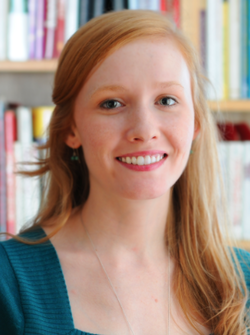 Laura Biagi at Jean V. Naggar Literary Agency
Laura Biagi at Jean V. Naggar Literary Agency
About Laura: Laura Biagi joined JVNLA in 2009. Laura's writing background has honed her editorial eye and has driven her enthusiasm for discovering and developing literary talent. She studied creative writing and anthropology at Northwestern University. As a writer, she has participated in workshops at the Squaw Valley Community of Writers, the Juniper Summer Writing Institute, and the New York State Summer Writers Institute. She is the recipient of a Kentucky Emerging Artist Award for fiction writing.
What she is seeking: She is actively building her own client list, seeking adult literary fiction and young readers books. In the adult fiction realm, she is particularly interested in literary fiction, magical realism, cultural themes, and debut authors. She is drawn to strong voices, complex narrative arcs, dynamic and well-developed characters, psychological twists, and dystopian/apocalyptic literary fiction.
In the young readers realm, she is seeking young adult novels, middle grade novels, and picture books. She loves young readers books that have a magical tinge to them and vivid writing. She also looks for titles that incorporate high concept, dark/edgy, and quirky elements, as well as titles that challenge the way we typically view the world.
How to submit to Laura: Please email your query to lbiagi at jvnla.com, or submit your query to her via the website at http://jvnla.com/submissions.html. Please include the first page of your manuscript when submitting your query.
_____________________
 Michelle Richter of Foreword Literary Agency
Michelle Richter of Foreword Literary AgencyAbout Michelle: Michelle Richter was formerly an editor at St. Martin’s Press. Michelle has a degree in Economics with a minor in Russian from the University of Massachusetts at Boston and left a career in finance for publishing. She joined St. Martin’s Press’ editorial department in 2006 after obtaining a Masters in Publishing from Pace University. Find her on Twitter at @michrichter1.
What she is seeking: Michelle is primarily seeking fiction, specifically book club reads, literary fiction, well-crafted women’s commercial fiction, thrillers, and mysteries. For nonfiction, she’s interested in fashion, film, television, science, medicine, sociology/social trends, and economics for trade audiences.
How to submit: To query Michelle, please send your query letter, a 1-2 page plot synopsis, and the first twenty pages of your manuscript to querymichelle [at] forewordliterary.com as an attached Word document. Please allow up to eight weeks response time.
____________________
 Rebecca Podos at Rees Literary Agency
Rebecca Podos at Rees Literary AgencyAbout Rebecca: Rebecca Podos (Rees Literary Agency) is a graduate of the MFA Writing, Literature and Publishing program at Emerson College, whose own fiction has appeared in Glimmer Train, Glyph, CAJE, Bellows American Review, Paper Darts, and SmokeLong Quarterly. She represents YA books by talented clients such as Rin Chupeco, Jen Anckorn, Ryan Bradford, Sarah Nicolas, Jen Estes, Kenny Logan, and more.
What she is looking for: Rebecca is primarily interested in Young Adult fiction of all kinds, including contemporary, emotionally driven stories, mystery, romance, urban and historical fantasy, horror, and sci-fi. Occasionally, she also considers literary and commercial adult fiction, New Adult, and narrative nonfiction.
How to submit: Submit a query letter and the first few chapters (pasted in the email) to Rebecca [at] reesagency.com.
____________________
 Laura Biagi at Jean V. Naggar Literary Agency
Laura Biagi at Jean V. Naggar Literary AgencyAbout Laura: Laura Biagi joined JVNLA in 2009. Laura's writing background has honed her editorial eye and has driven her enthusiasm for discovering and developing literary talent. She studied creative writing and anthropology at Northwestern University. As a writer, she has participated in workshops at the Squaw Valley Community of Writers, the Juniper Summer Writing Institute, and the New York State Summer Writers Institute. She is the recipient of a Kentucky Emerging Artist Award for fiction writing.
What she is seeking: She is actively building her own client list, seeking adult literary fiction and young readers books. In the adult fiction realm, she is particularly interested in literary fiction, magical realism, cultural themes, and debut authors. She is drawn to strong voices, complex narrative arcs, dynamic and well-developed characters, psychological twists, and dystopian/apocalyptic literary fiction.
In the young readers realm, she is seeking young adult novels, middle grade novels, and picture books. She loves young readers books that have a magical tinge to them and vivid writing. She also looks for titles that incorporate high concept, dark/edgy, and quirky elements, as well as titles that challenge the way we typically view the world.
How to submit to Laura: Please email your query to lbiagi at jvnla.com, or submit your query to her via the website at http://jvnla.com/submissions.html. Please include the first page of your manuscript when submitting your query.
Published on April 28, 2014 07:49
April 26, 2014
Gabriel Garcia Marquez, Dead at 87
 Gabriel Garcia Marquez was one of my all-time literary heroes, and I was deeply saddened to hear of his death on April 17. The literary world will be all the poorer for his absence.
Gabriel Garcia Marquez was one of my all-time literary heroes, and I was deeply saddened to hear of his death on April 17. The literary world will be all the poorer for his absence.Even if you are not a fan of magical realism - which, after spending five years in Latin America, I can assure you is a misnomer; every word of Garcia Marquez' books is true - you should read his memoir, Living to Tell the Tale.
Garcia Marquez published his novel, One Hundred Years of Solitude, when he was 40. Prior to writing what would become one of the enduring classics of the 20th century, he worked as a journalist in Bogota. He wrote sporadic short stories, and a novella, but most of his time was absorbed by exposing government corruption.
During his time as a journalist, he spent every lunch hour in a cafe with a group of colleagues where they would pass the afternoon tearing each other's work to shreds. By the time Garcia Marquez was ready to lock himself in a room and write the epic of Macondo, he had been honed to a razor's edge.
That is how you learn to be a great writer.
_____________________________
The magician in his labyrinth
The Economist, April 26, 2014
IN JULY 1965 Gabriel García Márquez—Gabo to all who revered him later—decided to lock himself away in a house on Calle de La Loma in Mexico City. He ordered his wife to sell the car and get credit from the butcher. For 15 months, using only his index fingers, he typed for six hours a day in a room he called “The Cave of the Mafia”. He survived on a diet of good Scotch and constant cigarettes. At five in the afternoon he would emerge into the fading light with his eyes wide, as though he had discoursed with the dead.
Inside the four walls of that room lay the immense delta of the Magdalena river, the grey frothy sea of Colombia’s Caribbean coast, the suffocating swamps of the Ciénaga, the interminable geometries of the banana plantations, and a long railway line that ran into the farthest territories of his heart. It ended at the village of Aracataca, now renamed by him Macondo, where his maternal grandparents had brought him up amid prospectors, fornicators, gypsies, scoundrels and virginal girls bent over their sewing frames. In that room where he had locked himself away he inhaled the sweet milk-candy and oregano of his grandmother and absorbed again the political venting of his grandfather, who had fought on the Liberal side in the War of a Thousand Days and who, at the book’s beginning, took him to discover ice, a great block of infinite internal needles that boiled his hand when he touched it.
“One Hundred Years of Solitude”, the fruit of his self-imprisonment, sold 50m copies in more than 30 languages. Critics observed that its style, magical realism as they called it, was not new: Jorge Luis Borges, a blind Argentine poet, had felt his way through those labyrinths before. But its fame was startling. The world was seduced by a Latin America where the Buendía family feuded internally and externally, with rifles or with silence, for generations; where death gave its female victims instructions to sew their own shrouds; where the blood from a suicide by shotgun flowed all through Macondo, carefully avoiding the carpets; and where Remedios the Beauty was taken up to heaven as she hung out sheets on the washing line.
Read the rest of the article here.
Published on April 26, 2014 15:31
April 24, 2014
Will Self-Publishing Exist in 10 Years?
 Back in the days before the Internet made it possible to publish ebooks, self-publishing meant printing your own book and warehousing thousands of copies in your garage while you shopped them to local bookstores. It was tedious, expensive, and time-consuming.
Back in the days before the Internet made it possible to publish ebooks, self-publishing meant printing your own book and warehousing thousands of copies in your garage while you shopped them to local bookstores. It was tedious, expensive, and time-consuming.Times have changed. Now you can self-publish on a number of platforms, advertise your book online, and choose whether you want it to appear in electronic or print-on-demand format - or both. And because of the success of self-published books like Wool, both agents and publishers are now interested in taking advantage of the new ebook-reading market.
Will the success and ease of different platforms - such as Amazon and Smashwords - mean that self-publishing will disappear as an independent entity in ten years? Will it merge seamlessly with traditional publishing until "self" publishing is subsumed within a larger framework?
My guess is probably not. Unlike Jon Fine (see below), I can't see a near future in which the largest publishing houses in the world will give up the ghost. Nor can I see a near future in which every self-published book has a chance to compete with the books backed by Random/Penguin. The problem is not just that the major publishers won't pick up the vast majority of self-published books, it's that the avenues for getting the word out on self-published books, even on Amazon, are becoming increasingly saturated.
No matter what the platform is, or how books are published, there will always be a great divide between those who have self-published and those who have the backing of university presses, well-established niche publishers, or major houses, with their contacts in national and international media networks. For as long as access to global
advertising is restricted to the select few, those who go it alone will have to scramble to get noticed.
_______________________________
Amazon’s Vision for the Future of Self-Publishing
Digital Book World, April 7, 2014
The term “self-publishing” may have outlived its usefulness, according to Jon Fine, director of author and publishing relations at Amazon, speaking at the Publishing for Digital Minds conference this week in London.
When asked at a recent past conference what “self-publishing” looked like in ten years, Fine, who is intimately involved in that business at Amazon, said that it probably won’t be called that anymore. In the future, authors will publish in a number of ways.
“If you’re an author in ten years, you’re going to have an array of options,” said Fine. “What we’ve done is provide the tools that make it possible to take a story and make it available to hundreds of millions of people around the world…and do it in multiple formats.”
Best-selling hybrid author Hugh Howey shared the stage with Fine. Howey could be an author from Fine’s future. He has self-published ebooks and audiobooks, traditionally published print books and translations, and has no definite plans in the future as to how he will publish his next title.
“Do you want to be a small business owner or work for a corporation?” asked Howey, referring to the difference between self-publishing, where authors are also entrepreneurs (the former) and traditional publishing, adding, “and there are advantages and disadvantages for both.”
In a typical example of the flexibility afforded authors today, Orna Ross, a hybrid author and founder of the Alliance of Independent Authors, who was also on the conference panel mentioned that she is publishing nine short books this year, about one every month, “and that’s not something a publisher would ever do.”
According to Fine, the next challenge facing authors, publishers and distributors like Amazon is how readers will discover the right books for them.
“We’ve created this tsunami of content,” said Fine. “It’s a high class problem to have too many stories. We, as tech companies, publishers, authors, service providers, have to find ways to help stories find the right audience. This discoverability problem is the next big challenge.”
Published on April 24, 2014 08:16
April 21, 2014
Top 5 Resources for Publishing Poetry
 Image: 123rf Poets tend to be solitary creatures. With a few notable exceptions, they are rarely social butterflies. As a consequence, they often have no idea what to do with their poems once they have written them. (I used to tack mine to trees.)
Image: 123rf Poets tend to be solitary creatures. With a few notable exceptions, they are rarely social butterflies. As a consequence, they often have no idea what to do with their poems once they have written them. (I used to tack mine to trees.)If you would like to see your poetry published, here are some resources that will provide you with all the information you need to locate the most suitable literary journal for your work.
If you want to pursue poetry as a long-term occupation, then do please take a look at the Poetry Society of America's website and consider joining.
____________________
Pushcart Prize List
Clifford Garstang is an award-winning author and lawyer. He is also extremely well organized. He keeps yearly lists of Pushcart Prize-winning literary magazines. (The magazines with the highest number of prizes are at the top.) There are 168 magazines listed, with links. For finding the top poetry magazines, you can't do better than this list.
___________________
Poets and Writers
The Poets & Writers Database is an indispensable tool for finding literary magazines. It provides such essential information as whether electronic submissions are accepted, if simultaneous submissions are allowed, reading period, if payment is offered, and circulation numbers. You can filter magazines by poetry or fiction. Magazines are not ranked. So, if you want to know a magazine's standing in the literary world, check it against Clifford's list.
Poets & Writers is the nation's largest nonprofit literary organization serving poets, fiction writers, and creative nonfiction writers. Aside from their database of literary magazines, they post contests, conferences, agents, jobs, and many other valuable resources for writers. P&W is worth joining.
____________________
New Pages
New Pages keeps a huge list of blogs and websites of poets and writers. Blogs have become a permanent feature of the literary landscape. They serve to keep writers informed of the latest news and information, and to share valuable insights and inspiration. If you are just breaking into publishing, the blogs and websites of successful writers also serve as signposts.
____________________
Power Poetry
Power Poetry is primarily geared toward young people, particularly high school students. The website offers a list of 50 places to publish poetry, a map and list of local poetry groups, mentors, and other useful resources. Young people can also post their poetry on the site, and receive comments from readers. Some of these talented young poets have posted hundreds of poems.
____________________
Poetry Society of America
Poets, hark! The Poetry Society of America is your organization! The PSA website features a comprehensive list of literary organizations, a huge list of poetry journals, poetry publishers, contests, interviews of editors of poetry magazines, and much more. Membership dues start at $25 (student rate).
Published on April 21, 2014 09:05



